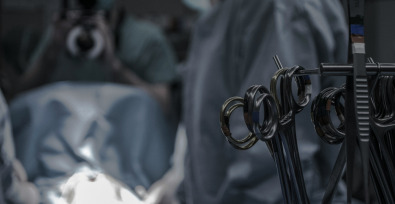At just 22 years old, Amon Kipruto Mely believed selling his kidney would be his ticket out of poverty. Living in a small village in Kenya, Amon struggled to survive in the aftermath of the COVID-19 pandemic. Then a friend introduced him to what seemed like a miracle opportunity. “He told me selling my kidney would be a good deal,” Amon recalled.
At Mediheal Hospital in Eldoret, Kenya, staff handed Amon consent documents written in English—a language he couldn’t read. “They did not explain anything to me,” said Amon. “The one who had taken me pointed at people around us and said: Look, they all donated, and they are even going back to work.”
He was paid only $4,000 instead of the $6,000 he was promised. Then came health issues: dizziness, weakness, and eventually collapse. His mother, Leah Metto, was horrified when she discovered what happened. “They are making money through young children like Amon,” she said.
An global network of exploitation uncovered
A joint investigation by DW, Der Spiegel, and ZDF exposed a global organized network that exploits both the impoverished in Kenya and wealthy patients abroad. According to the exposé article by DW, middlemen actively lure young men in towns like Oyugis, coercing as many as 100 people to sell their kidneys.
Willis Okumu, a crime researcher based in Nairobi, spoke with numerous young men who fell for the lure of selling their kidneys. According to Okumu, many now suffer from chronic health issues, depression, and trauma. “I don’t think they’re going to reach 60,” he warned. DW interviewed four young men who sold their kidneys for as little as $2,000. After surgery at Mediheal Hospital, brokers even tried to recruit them as middlemen, offering $400 per new “donor.”
“There’s a legal gray area that this syndicate is exploiting,” Okumu explained. While Kenyan law allows kidney donations for altruistic reasons or to relatives, it doesn’t criminalize receiving money for a donation—making prosecutions difficult.
International clients, secret deals
A former Mediheal Hospital employee revealed to DW that this syndicate of exploitation started years ago:
Initially, recipients came from Somalia and donors from Kenya. But then, in 2022, recipients started to come from Israel and, as of 2024, from Germany. The donors for these well-paying customers are flown in from countries including Azerbaijan, Kazakhstan or Pakistan.
The source said that donors were asked to sign documents stating they were relatives to recipients they never met and consenting to a kidney removal without being informed about potential health risks while some of them were not even old enough. “Because of the language barrier, they just sign,” the former employee said.
One such recipient was 57-year-old Sabine Fischer-Kugler from Germany. She told DW she paid between $100,000 and $200,000 through a company called MedLead to secure a transplant in Kenya. “Maybe I’m a bit selfish because I wanted this kidney,” she admitted. “But it’s clear. The operation isn’t as clean as it looks.”
MedLead, run by Robert Shpolanski—who has been implicated in illegal transplants before—claims all donors are “100% altruistic” and that the organization operates legally. However, investigations suggest otherwise.
Protected at the Top?
Despite serious allegations, authorities have not held Mediheal’s founder Swarup Mishra—a former MP and appointee of President William Ruto—accountable. A 2023 government investigation revealed troubling patterns: donors and recipients were frequently unrelated, and many procedures involved large cash payments. These are red flags often associated with organ trafficking and, in some cases, forced organ harvesting. Still, officials withheld the report from the public and took no action. “There are very powerful people who may be involved,” said a private investigator. “Does it go up to the top of government? Yeah.”
Now suffering the long-term effects of the surgery, Amon lives with deep regret. “If I could go back in time, I would have not accepted my kidney being removed. I hate myself for it.”
As global demand for organs rises and legal safeguards lag behind, the illicit trade continues to thrive—blurring the line between trafficking and outright forced organ harvesting, and preying on the desperate and overlooked.
By raising awareness and mobilizing support, we can challenge the systems that allow this abuse to flourish. Together, we must confront the root causes of organ trafficking and protect vulnerable people in crisis, so they don’t have to face impossible choices. Stand with us in our resolve to safeguard human dignity and combat the scourge of illegal organ harvesting. Take action today!







Freedom United is interested in hearing from our community and welcomes relevant, informed comments, advice, and insights that advance the conversation around our campaigns and advocacy. We value inclusivity and respect within our community. To be approved, your comments should be civil.